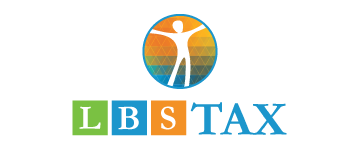Taxes and the ACA

With the start of 2015, it is important to know what policy changes mean and how they can affect you personally. Taxes are one area no one likes to be surprised about. When it comes to the Affordable Care Act there are some notable changes that can negatively impact you if you aren’t prepared.
The Affordable Care Act was written into law in 2010 and requires every citizen get health insurance or receive a penalty. They can do so through employment, or using the federal or state run insurance marketplace. There are some benefits to going through the marketplace though. These include tax credit eligibility, and knowledge that the plan will meet a government approved minimum standard of coverage.
The Premium Tax Credit and You
You can receive the premium tax credit, which helps pay for your insurance through the marketplace if:
- Your insurance was purchased through the marketplace.
- Your household income falls within the range of eligibility, for example:
- An individual is fully covered if they make $11,670 a year or less. They can receive a credit if they make up to, but not exceeding, $46,680.
- A family of four is fully covered if they make $23,850 a year or less. They can receive a credit if they make up to, but not exceeding, $95,400.
- You must not be able to get affordable coverage through your employee that meets the governments minimum value.
- Plans offered by an employer are considered affordable if the annual premium you pay for yourself does not go above 9.5 percent of your household income.
- Plans offered by an employer meet minimum value requirements if they cover at least 60 percent of expected total allowable costs for covered services.
- You must not be eligible for government program subsidized coverage. This includes things like Medicare, TRICARE, and Medicaid.
- You must not file a tax return as Married Filing Separately unless certain criteria are met.
- You cannot be claimed as a dependent on someone else’s tax return.
If you meet these requirements, as many do, you will receive the premium tax credit. Do not forget to adjust your income and eligibility requirements whenever they change. At the end of the year this can have a drastic effect on your tax return. If you make more than stated you will be required to pay back some of the tax credit (which is applied monthly to the cost of your insurance premium).
What if you don’t get Insurance?
There are yearly flat fee penalties that will be carried out on your taxes. These work on a scale and are either a flat rate, or a percentage of your income depending on which is greater. In 2014 this was $95 per adult and $47 per child up to $285 in a household, or 1% of your annual household income. In 2015 this moves up to $325 per individual and $162 per child up to a household maximum of $975, or 2% of your annual household income. This will raise again in 2016.
There are Exemptions
There are a number of exemptions that can lower or even eliminate the tax penalty entirely. These are dependent on everything from financial hardships to religious affiliations. Your local tax professional can help you determine your exemption qualifications. There is a limited time to enroll for insurance under the Affordable Care Act, so don’t wait to contact your local tax professional and find out what is best for you.
